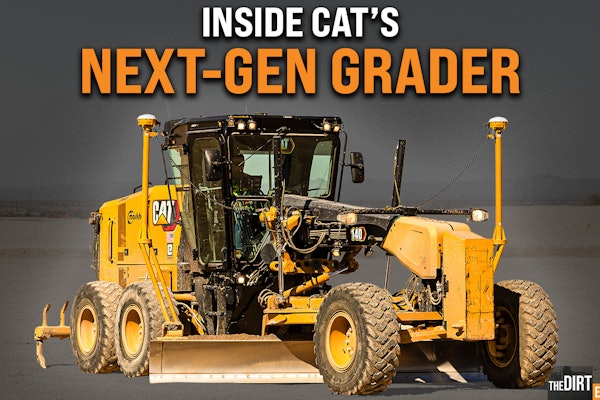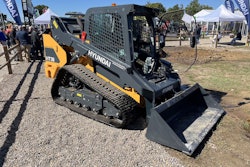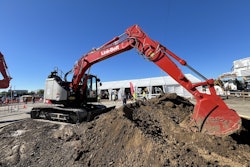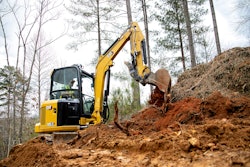If you use portable jobsite offices or storage units, chances are you lease rather than own them. There are good reasons for this.
“The flexibility of leasing mobile offices allows for easy relocation when one job finishes and another begins,” says Jill Thanner, product manager, traditional and classroom products, for Williams Scotsman. “When the term of the lease is through, so is your obligation.”
Leasing also means the office or storage unit is usually set up for you, you don’t have to store it if it’s not immediately needed elsewhere after you’ve wrapped up a project and you have fewer financed items on your books. Services from maintenance and cleaning to bottled water delivery are readily available. “It just makes things simpler on your end,” says Mike Valenti, product manager for GE Modular Space.
On the other hand, if you need only a small, 8-foot-by-20-foot unit, you can tow it easily and without special permits. In this case, buying instead of leasing might be more cost effective for you. Purchasing also might make more sense if your projects are long in duration. The fewer times you move and reinstall offices or storage containers, the less owning will cost you.
Check with your local building official to find out what requirements a portable office will have to meet. In some locations, temporary structures are held to the same standards as permanent ones.
Handling setup
Most contractors opt to have the office or storage container manufacturer or dealer install the unit and hook up utilities. Valenti says one of the biggest mistakes contractors who do the setup themselves make is not realizing how much time and energy will go into that endeavor.
“GE likes to give them a turn-key option,” he says. “That gives contractors time to really focus on what they should be doing. A lot of times they think they can do it because they have experience in construction, and it actually takes longer than they expect.”
Thanner says Williams Scotsman’s service crews can do everything from installation to complete construction management, giving you a one-stop shop.
Even if a manufacturer’s crew will be installing your office or storage container, preparing the site for delivery is usually up to you.
The unit will be delivered on a large truck, and the driver must have room to get the truck in and out of the site and positioned properly to drop off the office or storage container.
“The accessibility and condition of the jobsite are extremely important when scheduling delivery and setup,” says Christa Costa, product manager for Williams Scotsman’s storage line. “It is important to let your sales contact know about any site challenges or obstacles.”
If the soil is sandy, the delivery crew needs to know in advance so it can arrange to have a loader on hand, Valenti says.
Stake out where you want the unit parked and level the area. If the surface is concrete or asphalt, make sure it is dirt free and underground utilities are marked.
Meeting building codes
Remember portable offices and the manner in which they are installed have to meet building codes that, depending on your location, can be as stringent as those for permanent structures. Mike Baldino is president of Kelly Industries, a manufacturer of modular buildings that have to be put together on the jobsite. He recommends asking your local building official about requirements for temporary structures before you purchase or lease an office.
Under the 2003 International Building Code – the most recent national code – temporary structures have to meet the same standards as permanent ones. But earlier codes, which some building officials still follow, created an exception for temporary buildings, Baldino says. “The local building official can adopt all of the code or change part of it,” he notes. “But it’s becoming more of an issue because the 2003 IBC is becoming more prevalent. I gather over time it’s going to be more rigidly adhered to.”
Modern theft-prevention systems protect storage containers from break-ins and theft.
Office choices and considerations
Mobile offices typically vary from 8 to 14 feet wide and from 20 to 50 feet long, with an array of interior configurations available. Before choosing a unit, you need to decide how much space you’ll need throughout the project and how you want to use that space. Here are some questions to consider:
- How many office stations do you need?
- Do you want restrooms or a small kitchen?
- Will you hold meetings in the office?
- Do you need storage space for documents, tools or materials?
- Do you need design and plan tables?
- Would phone or computer hookups be helpful?
If you underestimate the amount of space you’ll need, you can always add another unit, but it’s more cost effective to get it right the first time. Ashley Mabe, sales representative for GE’s Orlando branch, suggests adding a few extra feet to your square footage estimate to handle any unforeseen space requirements. If you are new to leasing jobsite offices, visiting a manufacturer’s branch to get a first-hand look at how much space different products offer is a good idea. “What sounds good on paper may not be exactly what you expect,” Mabe says.
If you will only be at a site a few months or less, connecting water to a portable office might be more trouble than it’s worth. “Maybe bottled water would be more cost effective,” Mabe says. GE Modular Space offers daily bottled water delivery as an optional service. “But if it’s going to be a year and a half,” she continues, “it’s nice to have running water and restrooms.”
Depending on the value of the items you’ll be keeping in the office, you might want to get a unit with barred windows and a security system that will alert you or the police if someone breaks in.
Think about what kinds of furniture you want to have in the office. Some models come with built-in desks, design tables and drop-down draft boards. The office supplier or manufacturer can provide additional furniture as well.
Make sure the aesthetics of the office suit your jobsite. Most manufacturers offer an upgraded line of products with exterior and interior features more visually pleasing than those of their standard models. “If construction is going on at a high-end housing development, for example, this has a little better feel and fits the environment,” Mabe says of GE Modular’s Designer series. “It has nicer windows, a nicer door, a nicer exterior.” Upgraded lines typically cost 20 percent to 30 percent more than standard units.
If you need storage space for tools and materials in addition to office space, bear in mind you can lease or buy combination office/storage units, which have been available for about three years. “It’s easier to get the one unit instead of having to get two different ones,” Thanner says. If you need a lot of storage space, however, this option might not work for you. Since part of the unit will be sectioned off for the office, you won’t have as much storage space as you would in a typical container. And if you require office space for many employees, then a stand-alone mobile office might be a better fit.
Standard sizes for storage containers are 8 feet wide by 20 or 40 feet long, Costa says. This is ideal for most general and specialty contractors, she says.
Securing equipment, tools and materials from theft is the primary reason for using storage containers on a construction site. Locks for the units can be external – like industrial padlocks – or can be part of the container. Newer units have a steel cover that fits over the lock so a thief can’t break in with bolt cutters, Costa says.
No worries
Give the office or storage unit provider as much notice as possible when placing an order. For emergency needs, Thanner says Williams Scotsman can deliver most units in 48 hours, but having two or three months’ notice is much better. “Once the need for mobile space becomes apparent, begin planning for it immediately,” she says. “Often, the order is placed late, causing scheduling setbacks and delays on the jobsite.”
Finally, take into account the cleaning and maintenance contracts manufacturers offer during the lease term. “These services can be automatically scheduled and that’s one less thing you have to worry about,” Valenti says. “We want to keep the headaches away from you.”










